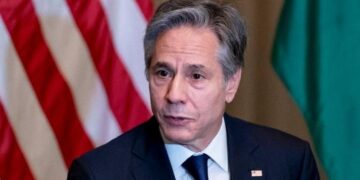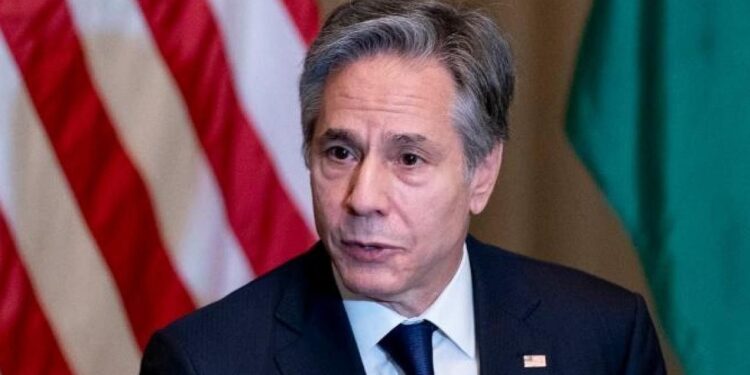By John Ikani
Amid the changing dynamics of international politics especially in Africa, the United States yesterday announced a new African Policy to contain the growing influence of China and Russia in the continent.
The launch of the policy, announced in a statement issued by the White House, comes as US Secretary of State, Antony Blinken, visits South Africa, Rwanda and the Democratic Republic of Congo.
China has over the years endeared itself to the African countries with massive investment in infrastructure projects, low- interest loans and connectivity under its Belt and Roads Initiative (BRI) and the Forum for China Africa Cooperation (FOCAC).
Russia on the other hand has made significant inroads into the continent to strengthen its alliance with countries in Africa amid the ongoing sanctions imposed by the US and European countries following Russia’s invasion of Ukraine.
It was therefore on these developments that the US yesterday released a new African policy to counter China and Russia’s presence in Africa.
The policy
The new policy, US policy towards Sub-Saharan Africa, reframes the region’s importance to US national security interests and articulates a new vision for how and with whom the US engages, while identifying additional areas of focus.
It states that the world recognises Africa’s importance which is spurring several engagements on the continent and this “presents new opportunities and challenges for US interests in the region.”
However, China and Russia see the continent as an arena to challenge the rules-based international order and drive their personal interests, the policy states.
“The People’s Republic of China (PRC), by contrast, sees the region as an important arena to challenge the rules-based international order, advance its own narrow commercial and geopolitical interests, undermine transparency and openness, and weaken US relations with African peoples and governments,” the policy said.
On the other hand, Russia views the region as a permissive environment for parastatals and private military companies, often fomenting instability for strategic and financial benefit, the report states.
It adds that “Russia uses its security and economic ties, as well as disinformation to undercut Africans’ principled opposition to Russia’s further invasion of Ukraine and related human rights abuses.”
The document states that some of the longstanding approaches of the US have become insufficient to meet new challenges in a more contested and competitive world.
In order to advance its priorities through the new policy, the US will employ four objectives in Sub-Saharan Africa in the next five years. These include fostering openness and open societies; delivering democratic and security dividends; advancing pandemic recovery and economic opportunity; and conservation, climate adaptation and a just energy transition.
Additionally, “we will broaden our engagements, continuing to invest in the largest states while also deepening our relations with small and medium African states to advance our shared priorities, including the AU’s Agenda 2063.”
The U.S. is likely to advance its objectives if Africa’s civil society, including journalists and activists, as well as multilateral bodies and democratic institutions, stand up for shared democratic values, such as transparency, accountability, diversity, equality and equity, women’s rights, and inclusion.
It will also elevate diaspora engagement to strengthen the dialogue between US officials and the diaspora in the United States and support the UN’s Permanent Forum for People of African descent.
“The United States will leverage all of our diplomatic, development, and defense capabilities, as well as strengthen our trade and commercial ties, focus on digital ecosystems, and rebalance toward urban hubs, to support these objectives,” it said.



































